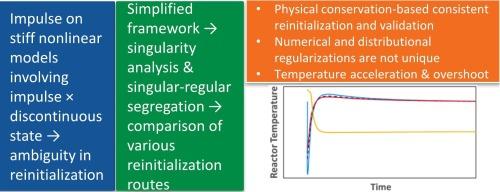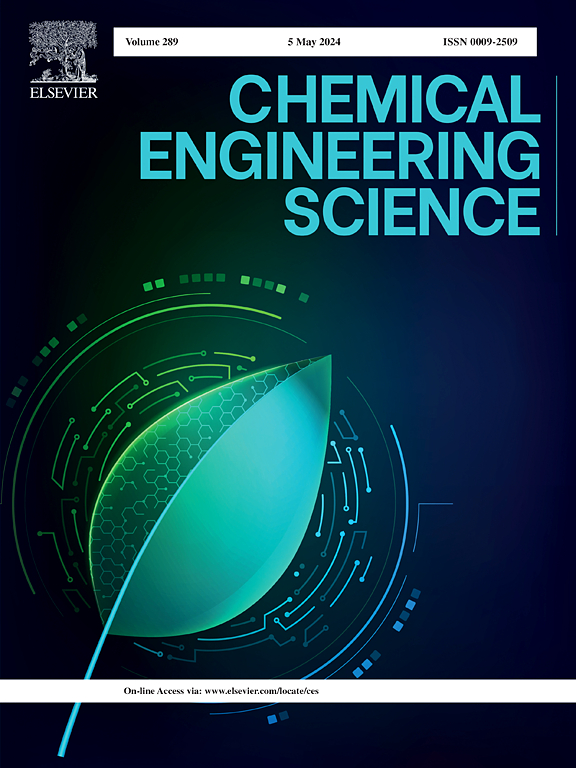Reinitialization of a class of nonlinear systems under impulse inputs: treatment of impulse–discontinuous state products with a CSTR application
IF 4.3
2区 工程技术
Q2 ENGINEERING, CHEMICAL
引用次数: 0
Abstract
Impulse response analysis is an effective and extensively utilized technique in chemical engineering, especially for residence time distribution analysis, dynamic characterization, and system identification. However, the strong nonlinearity of these systems, coupled with intractable terms involving products of impulses and discontinuous states, poses significant computational challenges to capture state reinitialization and evolution after discontinuities. In this work, an approach based on singularity analysis is proposed. Singularity analysis is performed to get the model’s singular component, and various strategies are employed to derive the reinitializations, which are then applied to initialize the regular component of the model and numerically compute the state trajectories. Choosing continuous stirred-tank reactor as a case study, the accuracy of these strategies is assessed across a broad range of operational parameters. The results obtained from these strategies are compared for robustness, and their relative precision and applicable ranges are systematically evaluated.

一类非线性系统在脉冲输入下的重新初始化:用CSTR应用处理脉冲不连续状态积
脉冲响应分析是化学工程中一种有效且广泛应用的技术,特别是在停留时间分布分析、动态表征和系统辨识等方面。然而,这些系统的强非线性,加上涉及脉冲和不连续状态乘积的棘手项,对捕捉不连续状态后的状态重新初始化和进化提出了重大的计算挑战。本文提出了一种基于奇异性分析的方法。通过奇异性分析得到模型的奇异分量,并采用各种策略推导出模型的再初始化策略,再初始化策略用于初始化模型的规则分量并对状态轨迹进行数值计算。选择连续搅拌槽反应器作为案例研究,在广泛的操作参数范围内评估这些策略的准确性。比较了这些策略的鲁棒性,系统地评价了它们的相对精度和适用范围。
本文章由计算机程序翻译,如有差异,请以英文原文为准。
求助全文
约1分钟内获得全文
求助全文
来源期刊

Chemical Engineering Science
工程技术-工程:化工
CiteScore
7.50
自引率
8.50%
发文量
1025
审稿时长
50 days
期刊介绍:
Chemical engineering enables the transformation of natural resources and energy into useful products for society. It draws on and applies natural sciences, mathematics and economics, and has developed fundamental engineering science that underpins the discipline.
Chemical Engineering Science (CES) has been publishing papers on the fundamentals of chemical engineering since 1951. CES is the platform where the most significant advances in the discipline have ever since been published. Chemical Engineering Science has accompanied and sustained chemical engineering through its development into the vibrant and broad scientific discipline it is today.
 求助内容:
求助内容: 应助结果提醒方式:
应助结果提醒方式:


